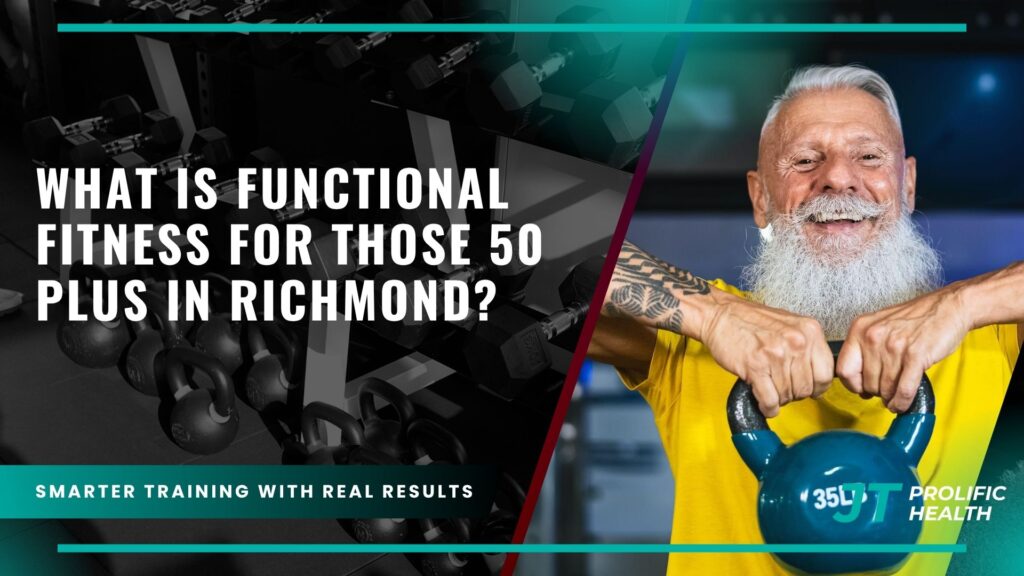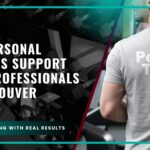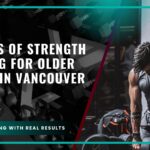As we age, maintaining physical fitness becomes increasingly important for preserving independence, preventing injuries, and enhancing quality of life. For residents of Richmond who are 50 and older, functional fitness represents a revolutionary approach to exercise that focuses on movements and activities that directly translate to daily living tasks. Unlike traditional gym workouts that might isolate specific muscle groups, functional fitness emphasizes compound movements that mirror real-world activities like climbing stairs, carrying groceries, getting up from chairs, and maintaining balance while walking on uneven surfaces.
The concept of functional fitness has gained tremendous popularity among mature adults because it addresses the specific challenges that come with aging. After age 50, our bodies naturally begin to experience changes in muscle mass, bone density, balance, and flexibility. These changes can significantly impact our ability to perform everyday activities with confidence and ease. Functional fitness training specifically targets these age-related concerns by incorporating exercises that strengthen the exact muscle groups and movement patterns we use in daily life.
Richmond’s mature population has embraced functional fitness as a practical and effective way to stay active and independent. This approach to exercise recognizes that the goal isn’t necessarily to lift the heaviest weights or run the fastest times, but rather to maintain and improve the physical capabilities needed for a fulfilling, autonomous lifestyle. Whether you’re a 50-year-old looking to prevent future mobility issues or a 70-year-old wanting to regain strength and confidence in movement, functional fitness offers a tailored approach that meets you where you are in your fitness journey.
The beauty of functional fitness lies in its adaptability and relevance to real life. Every exercise serves a purpose beyond the gym, creating a direct connection between your workout routine and your daily activities. This practical approach not only makes exercise more meaningful but also increases motivation and adherence to a regular fitness routine, as participants can immediately see and feel the benefits in their everyday lives.
Key Takeaways
- Real-World Application: Functional fitness for those 50 plus focuses on exercises that directly improve your ability to perform daily activities like climbing stairs, carrying objects, and maintaining balance, making every workout session immediately relevant to your life outside the gym.
- Injury Prevention Priority: This training approach emphasizes proper movement patterns and core stability, significantly reducing the risk of common injuries that affect older adults, particularly falls and back injuries that can severely impact independence.
- Comprehensive Health Benefits: Beyond physical strength, functional fitness improves cognitive function, bone density, cardiovascular health, and mental well-being, creating a holistic approach to healthy aging that addresses multiple aspects of wellness simultaneously.
- Adaptable and Progressive: Functional fitness programs can be modified for any fitness level or physical limitation, allowing individuals to start where they are and progress safely while accommodating existing health conditions or mobility challenges.
- Social and Mental Advantages: Group functional fitness classes provide valuable social interaction and community building, which are crucial for mental health and motivation, while the achievement of functional goals boosts confidence and self-efficacy in daily life.
- Long-term Independence: Regular participation in functional fitness training helps maintain the physical capabilities necessary for independent living, potentially delaying or preventing the need for assisted living arrangements and preserving quality of life well into advanced age.
Understanding Functional Fitness for Mature Adults
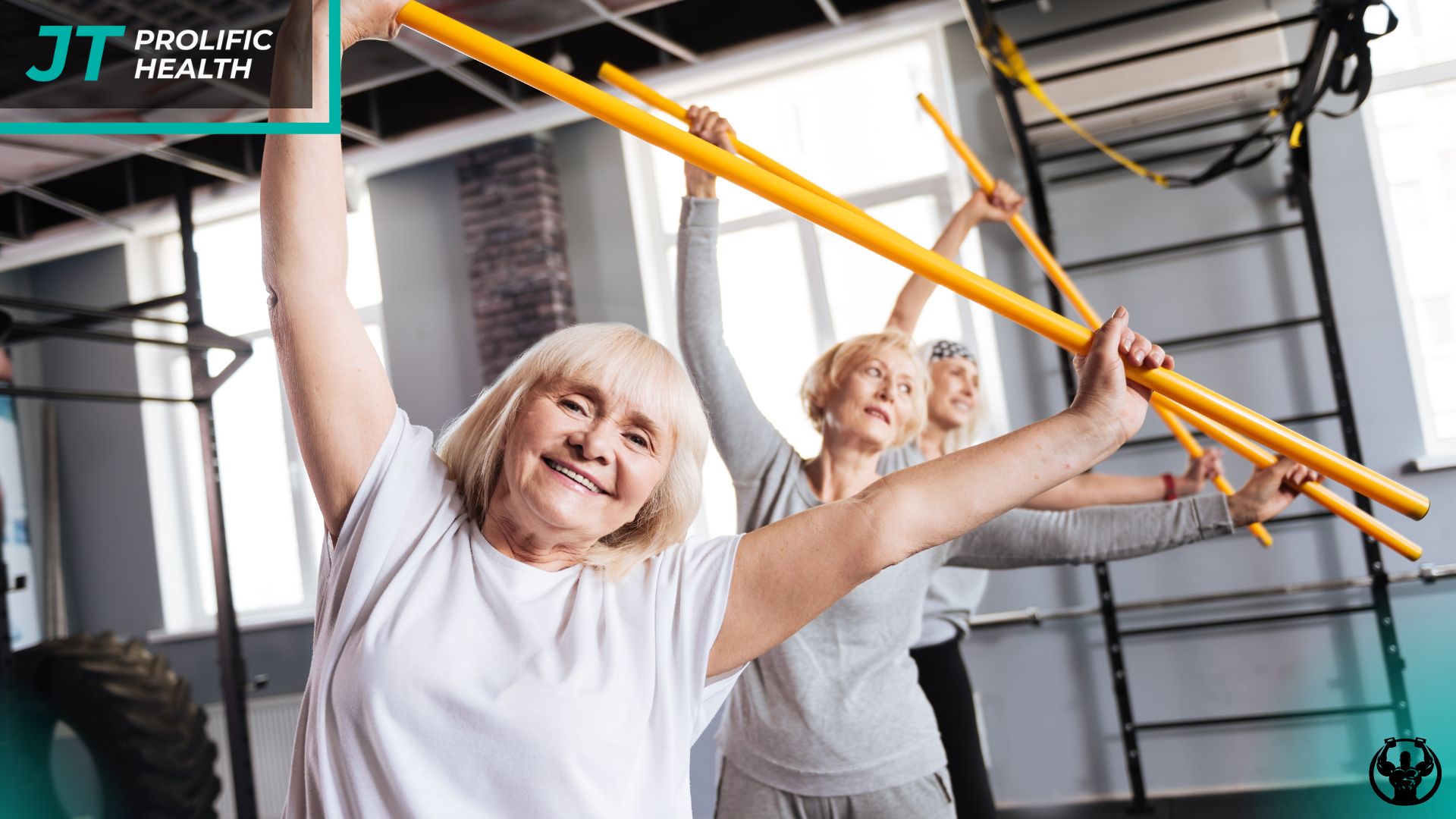
Functional fitness for seniors represents a paradigm shift from traditional exercise approaches that often focus on isolated muscle groups or aesthetic goals. Instead, this methodology prioritizes movement patterns and exercises that enhance the ability to perform activities of daily living with greater ease, safety, and confidence. The foundation of functional fitness lies in understanding that our bodies work as integrated systems, where multiple muscle groups, joints, and systems must coordinate effectively to accomplish even simple tasks.
For individuals over 50, functional fitness addresses the natural physiological changes that occur with aging. After age 30, we typically lose 3-8% of our muscle mass per decade, with this loss accelerating after age 50. Additionally, bone density decreases, balance and coordination can decline, and flexibility often diminishes. Functional fitness training specifically targets these areas through compound movements that engage multiple muscle groups simultaneously, promoting strength, stability, and coordination in ways that directly translate to improved daily function.
The core principles of functional fitness include movement integration, balance and stability training, flexibility and mobility work, and progressive overload adapted for mature bodies. Unlike traditional weightlifting that might isolate the biceps or quadriceps, functional exercises like squats, lunges, pushing, pulling, and rotational movements engage entire kinetic chains. This approach not only builds strength more effectively but also improves the communication between different body systems, enhancing overall movement quality and reducing injury risk.
Richmond’s fitness community has embraced functional fitness because it acknowledges the unique needs and goals of mature adults. Rather than pursuing maximum strength or extreme fitness levels, the focus shifts to maintaining and improving the physical capabilities that matter most for independent living and quality of life.
Core Components of Functional Fitness Training
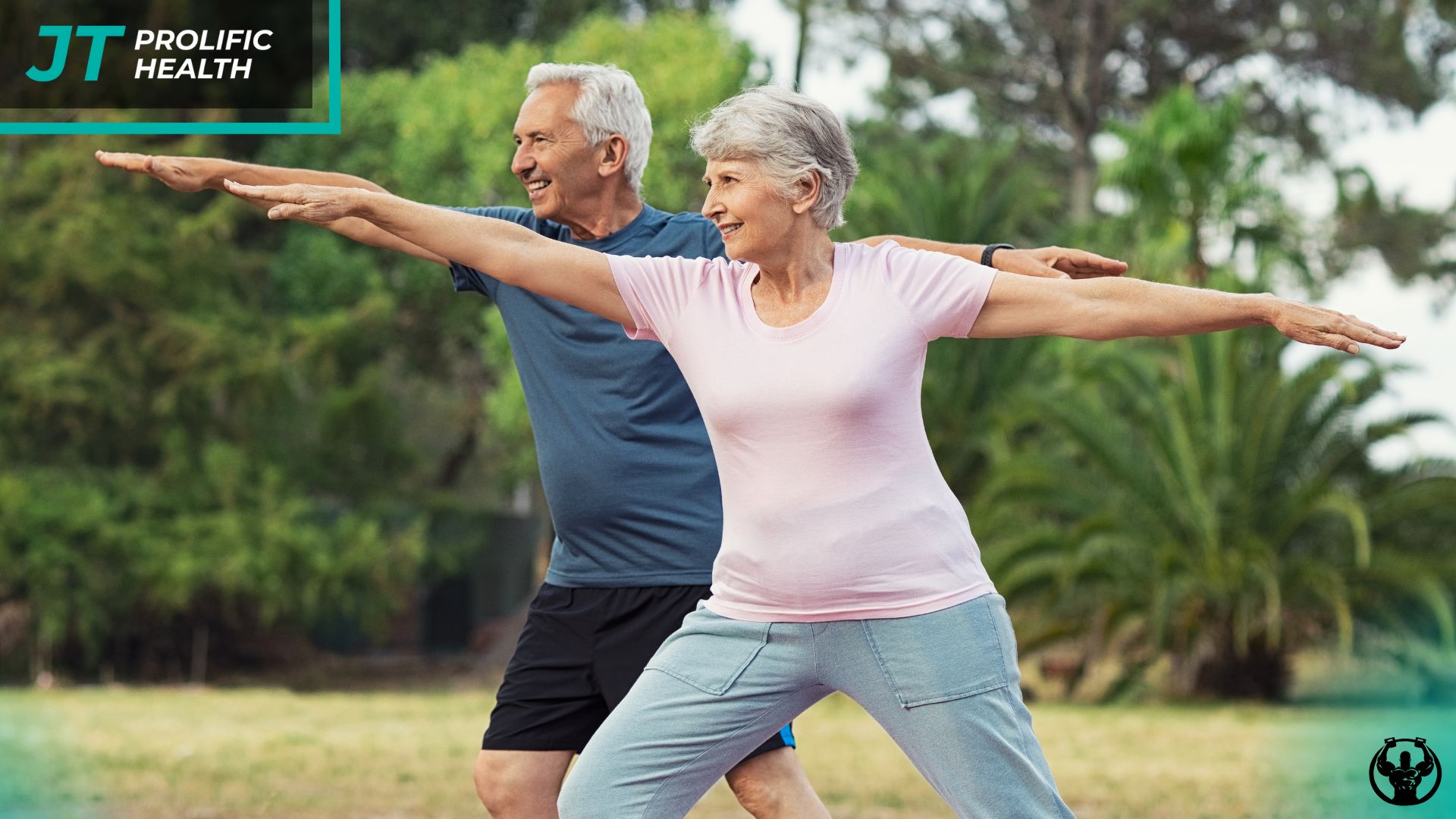

The foundation of effective functional fitness for those 50 plus rests on several key components that work together to create comprehensive physical preparation for daily life. Understanding these components helps individuals appreciate why functional fitness is so effective and how each element contributes to overall well-being and independence.
Strength training in functional fitness focuses on compound movements rather than isolation exercises. Squats, for example, don’t just strengthen the legs but also engage the core, improve hip mobility, and enhance the exact movement pattern needed to get up from chairs or climb stairs. Deadlift variations teach proper lifting mechanics that protect the back when picking up objects from the floor. Push and pull exercises develop the upper body strength needed for opening doors, carrying groceries, and maintaining good posture throughout daily activities.
Balance and stability training becomes increasingly critical as we age, as falls represent one of the leading causes of injury among older adults. Functional fitness incorporates static and dynamic balance challenges that progressively improve proprioception and reaction time. These might include single-leg stands, heel-to-toe walking, or exercises performed on unstable surfaces. The goal is to develop confidence and competence in maintaining balance during everyday situations like reaching for items on high shelves or navigating uneven sidewalks.
Flexibility and mobility work addresses the natural tendency for joints and muscles to become stiffer with age. Functional flexibility training focuses on maintaining and improving range of motion in movement patterns essential for daily life. This includes hip mobility for comfortable walking and stair climbing, shoulder flexibility for reaching overhead, and spinal mobility for bending and twisting movements. When working with qualified professionals who understand proper movement mechanics and skill development, participants can safely progress through mobility exercises that directly impact their daily comfort and function.
Cardiovascular conditioning in functional fitness often takes the form of circuit training or interval work that mimics real-life demands. Rather than spending long periods on cardio machines, functional cardiovascular training might involve moving between different exercise stations, carrying objects while walking, or performing compound movements with minimal rest. This approach improves both cardiovascular health and the stamina needed for daily activities like grocery shopping or household chores.
Specific Benefits for the 50 Plus Population
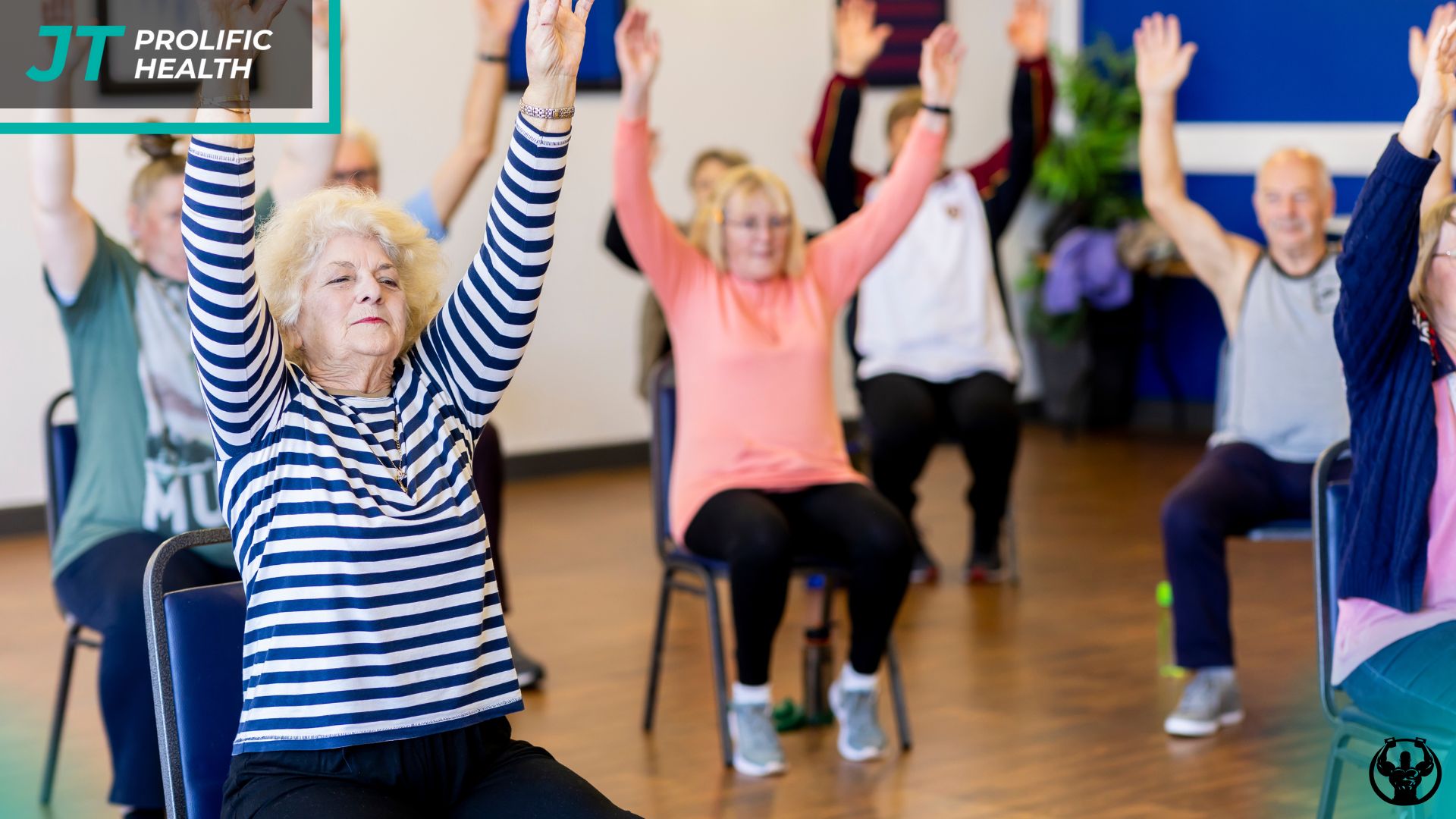

The benefits of functional fitness for individuals over 50 extend far beyond simple physical improvements, creating a cascade of positive effects that enhance every aspect of daily life. Understanding these specific benefits helps explain why functional fitness has become the preferred exercise approach for mature adults who want to maintain independence and vitality as they age.
One of the most significant benefits is the dramatic reduction in fall risk and injury prevention. Falls represent a major health concern for older adults, often leading to serious injuries that can permanently impact independence. Functional fitness training specifically addresses the factors that contribute to falls by improving balance, strengthening the muscles around joints, enhancing reaction time, and building confidence in movement. Participants often report feeling more stable and secure in their daily activities, whether navigating stairs, walking on uneven surfaces, or simply moving around their homes.
Bone health improvement represents another crucial benefit of functional fitness training. Weight-bearing exercises and resistance training stimulate bone formation and help maintain bone density, which naturally declines with age. The compound movements used in functional fitness provide the mechanical stress that bones need to stay strong, potentially reducing the risk of osteoporosis and fractures. This is particularly important for women over 50, who experience accelerated bone loss after menopause.
Cognitive benefits of functional fitness are increasingly recognized and researched. The complex, multi-planar movements required in functional training challenge the brain to coordinate multiple systems simultaneously, promoting neuroplasticity and cognitive function. Many participants report improved memory, better focus, and enhanced problem-solving abilities. The learning aspect of mastering new movement patterns also provides mental stimulation that contributes to cognitive health.
Pain reduction and improved joint health are common outcomes of consistent functional fitness training. By strengthening the muscles that support joints and improving movement patterns, many participants experience reduced chronic pain, particularly in the back, knees, and hips. The emphasis on proper movement mechanics helps correct imbalances and compensations that often develop over years of sedentary living or repetitive activities. For those seeking guidance on finding qualified fitness professionals who understand these complex relationships between movement and pain, Richmond offers several excellent options.
Mental health and confidence improvements are perhaps among the most transformative benefits of functional fitness. As participants master new skills and feel their bodies becoming stronger and more capable, self-efficacy increases dramatically. The social aspect of group classes provides valuable community connections, while the achievement of functional goals creates a positive feedback loop that enhances overall mental well-being and life satisfaction.
Getting Started with Functional Fitness in Richmond
Beginning a functional fitness journey after 50 requires careful planning, proper guidance, and a gradual approach that respects your current fitness level while progressively challenging your capabilities. Richmond offers numerous opportunities for mature adults to begin functional fitness training, but knowing how to start safely and effectively is crucial for long-term success and injury prevention.
The first step involves honest assessment of your current fitness level, health status, and any existing limitations or concerns. This includes consulting with your healthcare provider, especially if you have chronic conditions like diabetes, heart disease, or arthritis. Many successful functional fitness programs begin with a comprehensive fitness assessment that evaluates strength, balance, flexibility, and cardiovascular fitness. This baseline information helps create a personalized program that addresses your specific needs and goals.
Choosing the right fitness professional or program is critical for success. Look for trainers or instructors who have specific experience working with mature adults and understand the unique considerations of training individuals over 50. The importance of proper certifications and specialized training cannot be overstated when working with this population. Qualified professionals will understand how to modify exercises, progress safely, and recognize when adjustments are needed.
Starting slowly and focusing on form over intensity is essential for building a sustainable functional fitness practice. Initial sessions should emphasize learning proper movement patterns, developing body awareness, and building a foundation of basic strength and mobility. Many successful programs begin with bodyweight exercises and basic equipment like resistance bands or light dumbbells before progressing to more challenging movements or heavier loads.
Setting realistic and meaningful goals helps maintain motivation and provides clear direction for your fitness journey. Rather than focusing solely on weight loss or appearance changes, functional fitness goals might include being able to climb stairs without getting winded, improving balance confidence, reducing back pain, or maintaining independence in daily activities. These functional goals provide immediate relevance and motivation that sustains long-term commitment to regular exercise.
Creating a consistent routine and finding accountability partners significantly improves adherence to functional fitness programs. Whether through group classes, workout partners, or regular check-ins with a trainer, having support and accountability helps overcome the inevitable challenges and plateaus that occur in any fitness journey. Richmond’s fitness community offers numerous opportunities for social connections and mutual support among mature adults pursuing similar health and fitness goals.
Common Functional Exercises and Progressions
Understanding the specific exercises that form the foundation of functional fitness helps individuals appreciate how each movement translates to improved daily function. These exercises are carefully selected and progressively modified to meet the needs and capabilities of mature adults while providing maximum benefit for real-world activities.
Squatting movements form the cornerstone of functional fitness because they directly relate to getting up from chairs, using the toilet, and picking up objects from low surfaces. For beginners, chair-assisted squats provide support and confidence while building leg strength and teaching proper movement patterns. As strength and confidence improve, progressions might include unassisted squats, single-leg squats, or squats with added resistance. The key is maintaining proper form throughout the movement, emphasizing controlled descent and powerful ascent while keeping the chest up and knees tracking properly.
Pushing and pulling exercises develop the upper body strength essential for daily activities like opening doors, carrying groceries, and maintaining good posture. Wall push-ups provide an excellent starting point for those new to exercise, progressing to inclined push-ups, knee push-ups, and eventually full push-ups as strength improves. Pulling exercises using resistance bands or cables help counteract the forward head posture common in our technology-driven world while building the strength needed for activities like pulling open heavy doors or starting lawn mowers.
Balance and stability exercises progress from static holds to dynamic challenges that improve confidence and reaction time. Simple single-leg stands can progress to eyes-closed balance, balance on unstable surfaces, or dynamic movements like walking heel-to-toe or standing on one foot while performing upper body movements. These exercises directly translate to improved stability during daily activities and reduced fall risk.
Core strengthening in functional fitness goes beyond traditional crunches to include exercises that teach the core to stabilize the spine during movement. Planks, dead bugs, bird dogs, and modified side planks help develop the deep core strength essential for protecting the back during lifting, bending, and twisting movements. When working with experienced professionals who understand quality training principles, participants learn to engage their core properly during all functional movements, creating a protective foundation for daily activities.
Flexibility and mobility exercises address the common areas of stiffness that develop with age and sedentary living. Hip flexor stretches help counteract the effects of prolonged sitting, while shoulder and chest stretches improve posture and reaching ability. Spinal mobility exercises maintain the ability to bend and twist safely, essential for activities like looking over the shoulder while driving or reaching for items in cabinets.
Addressing Common Concerns and Misconceptions
Many individuals over 50 hesitate to begin functional fitness programs due to common concerns and misconceptions about exercise and aging. Addressing these concerns directly helps remove barriers to participation and encourages more mature adults to experience the life-changing benefits of functional fitness training.
One of the most prevalent concerns is the fear of injury or making existing conditions worse. While this concern is understandable, research consistently shows that appropriate exercise, including functional fitness training, actually reduces injury risk and improves management of many chronic conditions. The key lies in working with qualified professionals who understand how to modify exercises and progress safely. When individuals learn about potential warning signs in fitness guidance, they can make informed decisions about their training approach and avoid potentially harmful situations.
Another common misconception is that functional fitness is too challenging or intense for older adults. In reality, functional fitness is infinitely scalable and can be adapted for any fitness level or physical limitation. The beauty of this approach lies in its flexibility – exercises can be modified using chairs for support, reducing range of motion, or adjusting resistance levels. The goal is always to challenge individuals appropriately while maintaining safety and proper form.
Some mature adults worry that they’re “too old” to start exercising or that they’ve missed their opportunity to improve their fitness. Scientific research consistently demonstrates that it’s never too late to begin exercise and experience significant benefits. Adults in their 70s, 80s, and beyond can still build muscle, improve balance, enhance flexibility, and increase cardiovascular fitness through appropriate functional training programs.
Cost concerns often prevent individuals from pursuing professional guidance in functional fitness. While working with qualified trainers requires investment, many Richmond facilities offer group classes, senior discounts, or sliding scale pricing that makes functional fitness accessible to various budgets. Additionally, the long-term healthcare cost savings from maintaining independence and preventing injuries often far exceed the investment in preventive fitness training.
Time constraints represent another common barrier, with many individuals believing they don’t have enough time for effective exercise. Functional fitness programs can be highly efficient, with significant benefits achieved through just 2-3 sessions per week of 30-45 minutes each. The time investment in functional fitness often pays dividends in increased energy and efficiency in daily activities, actually creating more productive time in other areas of life.
Prolific Health’s Approach to Functional Fitness
Prolific Health has established itself as a leader in functional fitness training for mature adults in Richmond, offering specialized programs that address the unique needs and goals of individuals over 50. Their comprehensive approach combines evidence-based exercise principles with personalized attention and supportive community environment that makes functional fitness accessible and enjoyable for all participants.
The team at Prolific Health understands that successful functional fitness programs for mature adults require more than just modified exercises – they require a deep understanding of the physiological, psychological, and social factors that influence exercise adherence and success in this population. Their trainers receive specialized education in working with older adults, including understanding common health conditions, medication interactions, and the importance of gradual progression in building both physical capabilities and confidence.
Prolific Health’s functional fitness programs begin with comprehensive assessments that evaluate not just physical capabilities but also individual goals, concerns, and lifestyle factors. This holistic approach ensures that each participant’s program is truly personalized and relevant to their specific needs and aspirations. Whether someone wants to improve their golf game, keep up with grandchildren, or simply maintain independence in daily activities, the program is tailored accordingly.
The facility’s approach to functional fitness emphasizes education and empowerment, teaching participants not just what exercises to do but why they’re important and how they translate to daily life improvements. This educational component helps participants understand the value of their investment in fitness and provides motivation for long-term adherence to healthy lifestyle habits. For those interested in understanding more about comprehensive lifestyle approaches to health and fitness, Prolific Health provides valuable guidance beyond just exercise programming.
Safety remains the top priority in all Prolific Health programs, with careful attention to proper form, appropriate progression, and individual limitations. The supportive environment encourages participants to challenge themselves while feeling secure and confident in their abilities. Regular progress assessments and program adjustments ensure that each individual continues to advance safely toward their functional fitness goals.
Frequently Asked Questions
What makes functional fitness different from regular exercise for people over 50?
Functional fitness specifically focuses on movements and exercises that directly translate to daily living activities, rather than isolating muscle groups or pursuing aesthetic goals. For people over 50, this means emphasizing exercises like squats for getting up from chairs, balance training for fall prevention, and core strengthening for back health during daily activities.
How often should someone over 50 participate in functional fitness training?
Most experts recommend 2-3 functional fitness sessions per week, allowing for recovery time between sessions. This frequency provides sufficient stimulus for strength gains and skill development while respecting the longer recovery needs of mature adults. Consistency is more important than frequency, so starting with 2 sessions per week and maintaining that schedule is better than attempting daily workouts that become unsustainable.
Can functional fitness help with existing health conditions like arthritis or diabetes?
Yes, functional fitness can be highly beneficial for managing many chronic health conditions. For arthritis, appropriate movement and strengthening can reduce joint pain and stiffness. For diabetes, regular exercise helps with blood sugar management and insulin sensitivity. However, it’s essential to work with healthcare providers and qualified fitness professionals who understand how to modify exercises for specific health conditions.
What should I expect during my first functional fitness session?
Your first session will likely focus on assessment and education rather than intense exercise. Expect to discuss your health history, goals, and concerns, followed by basic movement assessments to evaluate your current capabilities. Initial exercises will be conservative and focus on learning proper form and movement patterns rather than challenging your limits.
Is functional fitness safe for someone who has never exercised regularly?
Absolutely, when properly supervised and progressed. Functional fitness programs for mature adults are designed to start at very basic levels and progress gradually. Even individuals who have been sedentary for years can safely begin functional fitness training with appropriate modifications and professional guidance.
How long does it take to see results from functional fitness training?
Many participants notice improvements in energy and confidence within 2-4 weeks of starting a program. Strength gains and balance improvements typically become apparent within 6-8 weeks, while more significant changes in functional capacity and independence often develop over 3-6 months of consistent training.
What equipment is needed for functional fitness exercises?
Many functional fitness exercises can be performed with minimal equipment using body weight, chairs for support, and simple tools like resistance bands. As programs progress, light dumbbells, stability balls, and balance pads might be incorporated, but expensive equipment is not necessary for effective functional fitness training.
How do I know if a functional fitness program is right for me?
If you want to maintain or improve your ability to perform daily activities independently, functional fitness is likely beneficial. The best way to determine if a specific program is right for you is to consult with qualified professionals who can assess your individual needs and design an appropriate program that matches your goals and capabilities.
Conclusion
Functional fitness represents a transformative approach to exercise for individuals over 50, offering a practical and effective path to maintaining independence, preventing injuries, and enhancing quality of life as we age. Unlike traditional exercise programs that may focus on isolated muscle groups or aesthetic goals, functional fitness directly addresses the movements and capabilities we need for daily living, making every workout session immediately relevant and valuable.
The comprehensive benefits of functional fitness extend far beyond physical improvements to encompass cognitive health, mental well-being, and social connections that are crucial for successful aging. Richmond’s mature population has embraced this approach because it acknowledges their unique needs and goals while providing a supportive, safe environment for pursuing health and fitness objectives. The emphasis on real-world application means that participants can immediately see and feel the benefits of their efforts in their daily activities, creating powerful motivation for long-term adherence to healthy lifestyle habits.
Starting a functional fitness journey after 50 requires courage, commitment, and proper guidance, but the rewards are immeasurable. With qualified professionals, appropriate programming, and a supportive community, individuals can build strength, confidence, and capabilities that enhance every aspect of their lives. The investment in functional fitness today pays dividends in maintained independence, reduced healthcare costs, and improved quality of life for years to come, making it one of the most valuable investments mature adults can make in their future well-being.


